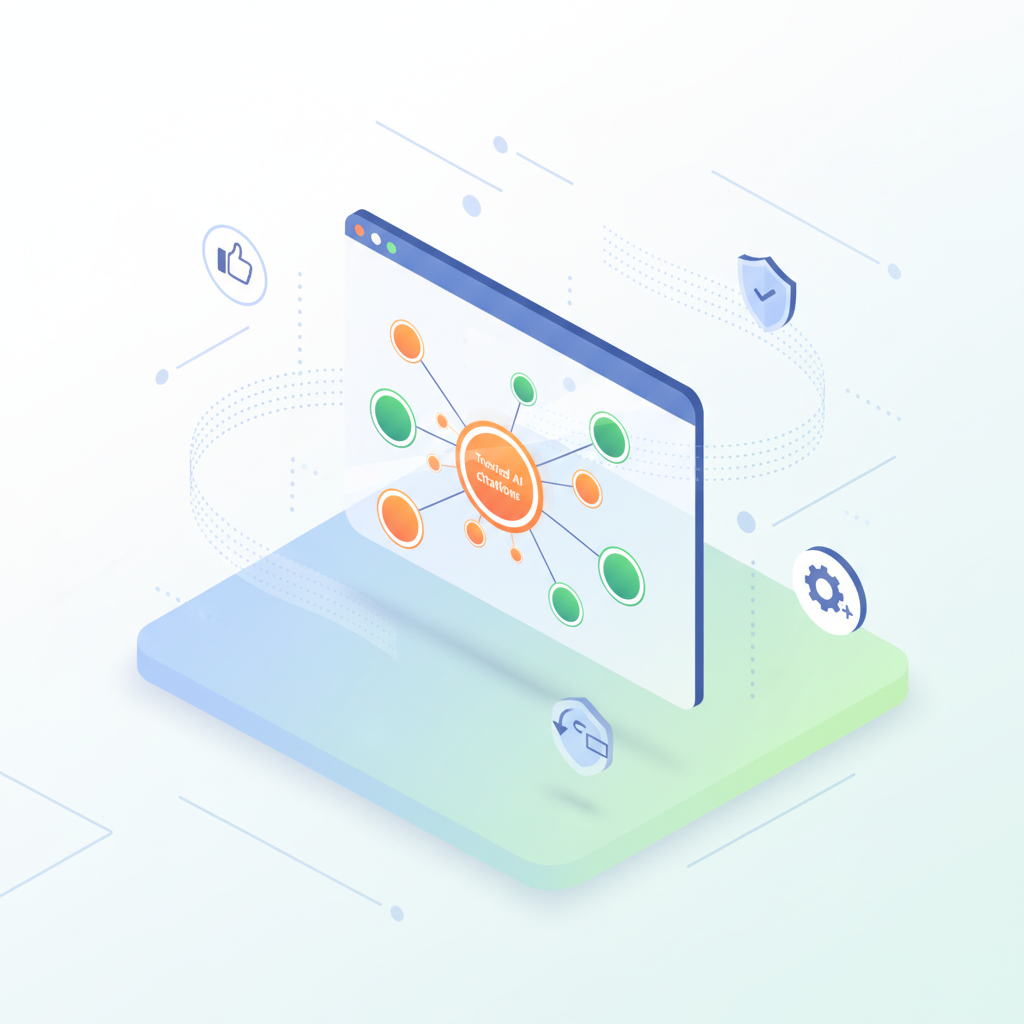Key Takeaways
- Traditional SEO is becoming less effective for ecommerce founders.
- Customers increasingly rely on AI tools like ChatGPT and Perplexity for purchase decisions.
- Google’s AI Overviews provide product answers without directing traffic to websites.
- Successful brands in 2025 will be those cited by answer engines at the moment of purchase intent.
Table of Contents
- Why Outsource Ecommerce SEO in 2025?
- What Services Should You Outsource? (Modern Ecommerce SEO, Not Just Old-School “Ranking”)
- Framework, How Agentic SEO Outsourcing Really Works (ESSO Co’s 100-Day Traffic Sprint Model)
- In-House vs. Outsourced vs. Agentic SEO, What’s Best for Fast-Growth Ecommerce Brands?
Outsource Ecommerce SEO Services, The Founder’s Playbook for Agentic Growth
Traditional SEO is dying a slow death, and most ecommerce founders don’t even realize it. While you’re still chasing #1 rankings, your customers are asking ChatGPT what to buy, Perplexity which brands to trust, and Google’s AI Overviews are answering product questions without sending traffic to your site. The brands winning in 2025 aren’t just ranking, they’re being cited by answer engines at the moment of purchase intent. Book a free AEO and SEO strategy call to discover how your brand can get ahead of this shift.
I’ve spent the last 18 months rebuilding how we approach outsource ecommerce SEO services for our $250M+ portfolio of brands. The shift isn’t subtle, it’s seismic. Brands that adapt to Agentic SEO are seeing 3x faster content production, 40% more qualified traffic, and most importantly, revenue that compounds instead of plateaus. Those stuck in 2019 SEO thinking are watching their organic growth stagnate, even when they’re “winning” traditional rankings.
This isn’t another generic guide about finding an SEO agency. This is a systems-thinking approach to outsourcing ecommerce SEO that treats AI disruption as fuel for growth, not a threat to your traffic. For more insights and actionable strategies, visit our blog for the latest updates in ecommerce SEO.
Why Outsource Ecommerce SEO in 2025?
The math on in-house ecommerce SEO broke somewhere between Google’s helpful content updates and ChatGPT hitting 2.5 billion daily prompts. A competent SEO manager costs $120K+ annually, plus another $50K in tools, training, and opportunity cost. That’s $170K for one person who can’t possibly keep pace with AI-powered content systems producing 50+ optimized articles per month.
Real Cost Breakdown: In-house SEO teams average 2-4 content pieces monthly. Modern agentic systems produce 50+ pieces in the same timeframe, with built-in schema optimization, answer engine targeting, and automated quality control.
| Approach | Annual Cost | Content Output | AI Integration | Time to Results |
|---|---|---|---|---|
| In-House Team | $170K+ | 24-48 pieces/year | Limited | 6-12 months |
| Freelance SEO | $60K+ | 12-24 pieces/year | None | 9-18 months |
| Traditional Agency | $120K+ | 36-72 pieces/year | Basic | 4-8 months |
| Agentic SEO System | $80K+ | 600+ pieces/year | Full Integration | 30-90 days |
The access advantage is even more critical. Answer engine optimization requires understanding how Claude, GPT-4, and Perplexity parse and cite content differently than Google’s traditional crawler. Most in-house teams are still optimizing for 2022’s algorithm while their customers have moved to AI-powered search.
One of our Shopify brands freed up two full-time employees after implementing our 100-Day Traffic Sprint, then watched organic revenue triple over six months. The founder told me: “I got my Saturdays back and my traffic finally started compounding instead of plateauing.”
What Services Should You Outsource? (Modern Ecommerce SEO, Not Just Old-School “Ranking”)

Forget everything you know about “SEO services.” The game changed when answer engines started influencing purchase decisions. Modern outsource ecommerce SEO services focus on being cited, recommended, and trusted by AI, not just indexed by Google.
Agentic Content Operations
AI agents that pull product catalog data, generate FAQ clusters, create comparison tables, and publish schema-optimized content at scale. We’re talking 10+ articles per day, not per month, with human strategy directing every piece.
Answer Engine Optimization (AEO)
Structured data implementation goes beyond basic Product schema. Modern ecommerce sites need FAQ, HowTo, Review, and Organization schemas that feed directly into AI training datasets and citation algorithms. To learn more about the evolution of SEO, check out this comprehensive overview of search engine optimization.
Schema Example: Our system automatically generates FAQ schema from customer support tickets, product reviews, and search queries, creating content that answers questions before customers ask them.
Technical SEO Infrastructure
Core Web Vitals optimization, mobile-first indexing, and site architecture that supports both traditional crawlers and AI content ingestion. This includes XML sitemaps optimized for product discovery and category clustering.
Digital Authority Building
Strategic placement in Reddit discussions, industry forums, and review aggregation sites where AI models source their recommendations. This isn’t link building, it’s citation building for the answer engine era.
The integration piece matters most. For a deeper dive into our approach and to see real-world case studies, visit our homepage for more resources.
Framework, How Agentic SEO Outsourcing Really Works (ESSO Co’s 100-Day Traffic Sprint Model)
Most agencies promise “results in 6-12 months.” We’ve flipped that timeline upside down with our 100-Day Traffic Sprint, a systematic approach that combines AI automation with strategic human oversight to deliver compounding organic growth in a fraction of the traditional timeframe.
The Always-On AI Content System
Our agentic SEO framework operates through autonomous agents that pull directly from your product catalog, analyze competitor gaps, generate optimized content clusters, and publish at scale, all while maintaining brand voice and quality standards through human QA checkpoints.
Here’s how the 100-Day Traffic Sprint unfolds: Days 1-30 focus on technical foundation and quick-win optimizations. We implement proper schema markup, fix Core Web Vitals issues, and launch the first wave of AI-generated product-focused content. Days 31-70 build topical authority through systematic content clusters that target both traditional search and AI answer engines. The final 30 days optimize for compounding growth, where early content starts ranking and feeding data back into our AI systems for continuous improvement.
| Sprint Phase | Focus Area | Key Deliverables | Expected Impact |
|---|---|---|---|
| Days 1-30 | Technical Foundation | Schema implementation, site speed optimization, initial content batch | Improved indexation, faster load times |
| Days 31-70 | Authority Building | Content clusters, answer engine optimization, structured data | Keyword rankings, AI citations |
| Days 71-100 | Compounding Growth | Performance optimization, scaling systems, conversion integration | Traffic multiplication, revenue attribution |
The revenue alignment piece is crucial. Unlike traditional agencies that bill for deliverables regardless of results, our model ties compensation to actual organic revenue growth. When your traffic converts to sales, we share in that upside. This alignment ensures we’re optimizing for business outcomes, not just vanity metrics like “keyword rankings” that don’t pay the bills.
What sets this apart from legacy SEO approaches is the feedback loop velocity. Our AI agents analyze performance data daily, adjusting content strategies, identifying new opportunities, and scaling what works, all without the bottlenecks of manual reporting cycles that slow down traditional agencies. For further reading on government digital SEO strategies, see this resource from Digital.gov.
In-House vs. Outsourced vs. Agentic SEO, What’s Best for Fast-Growth Ecommerce Brands?
The choice between building internal SEO capabilities versus outsourcing isn’t just about cost, it’s about speed to impact and access to cutting-edge AI automation that most in-house teams simply can’t match. After working with hundreds of ecommerce brands, I’ve seen the real numbers behind each approach.
| Model | Time to Impact | Annual Cost | Content Output | AI Integration | Best For |
|---|---|---|---|---|---|
| In-House | 6-12 months | $120K-200K+ | 2-4 posts/month | Limited | $50M+ brands with dedicated resources |
| Freelance | 3-6 months | $36K-72K | 4-8 posts/month | None | Small brands testing SEO |
| Traditional Agency | 4-8 months | $60K-150K | 8-15 posts/month | Basic | Established brands wanting hands-off approach |
| Agentic SEO (ESSO Co) | 30-100 days | Revenue-aligned | 50+ posts/month | Full automation | Growth-focused ecommerce brands |
The skill stacking advantage is where agentic SEO really shines. Instead of hiring one “SEO manager” who might be strong in keyword research but weak in technical implementation, you get access to specialists in AI automation, ecommerce conversion optimization, schema markup, and answer engine optimization, all working in concert through our systematized approach.
Here’s when NOT to outsource ecommerce SEO services: if your brand generates less than $1M annually, if you’re in a highly regulated industry requiring extensive content review cycles, or if you have unique technical constraints that require daily hands-on management. For everyone else, the speed and expertise advantages of agentic outsourcing far outweigh the perceived “control” of keeping everything in-house. For more information on our terms and privacy practices, review our terms and privacy policy.
The total cost of ownership tells the real story. That $120K in-house salary doesn’t include the $20K+ in SEO tools, the 3-6 month learning curve, the opportunity cost of your founder time spent managing SEO instead of product development, or the lost growth from not having an always-on AI content system compounding your traffic. The brands that win in 2025 will be those that adapt, automate, and align their SEO with the new answer engine reality.
Frequently Asked Questions
Why is traditional SEO becoming less effective for ecommerce brands in 2025?
Traditional SEO is losing effectiveness because customers increasingly rely on AI-powered tools like ChatGPT and Perplexity for purchase decisions, while Google’s AI Overviews provide direct product answers without driving traffic to websites. This shift means ranking #1 on search engines no longer guarantees visibility or influence at the moment of purchase intent.
What are the main benefits of outsourcing ecommerce SEO compared to maintaining an in-house SEO team?
Outsourcing ecommerce SEO leverages AI-driven content optimization and expert execution at scale, producing 3x more content with built-in schema and answer engine targeting. In contrast, in-house teams typically produce fewer pieces and struggle to keep pace with AI-powered systems, making outsourcing more cost-effective and growth-oriented for fast-scaling brands.
How does Agentic SEO differ from traditional SEO approaches in terms of content production and AI integration?
Agentic SEO combines human strategy with AI-powered execution to produce high-quality, specialized content at scale, often 50+ pieces monthly versus 2-4 from traditional teams. It focuses on optimizing not just for rankings but for AI answer engines, using structured data and real-time purchase intent targeting to drive compounding organic growth.
What strategies do successful ecommerce brands use to get cited by AI-powered answer engines at the moment of purchase intent?
Successful brands create highly specific, structured content designed for AI answer formats, including comparisons, lists, and schema markup. They build surround sound by generating diverse mentions across platforms like Reddit and optimize for real-time purchase intent signals, ensuring they appear as trusted sources when AI tools deliver buying recommendations.

